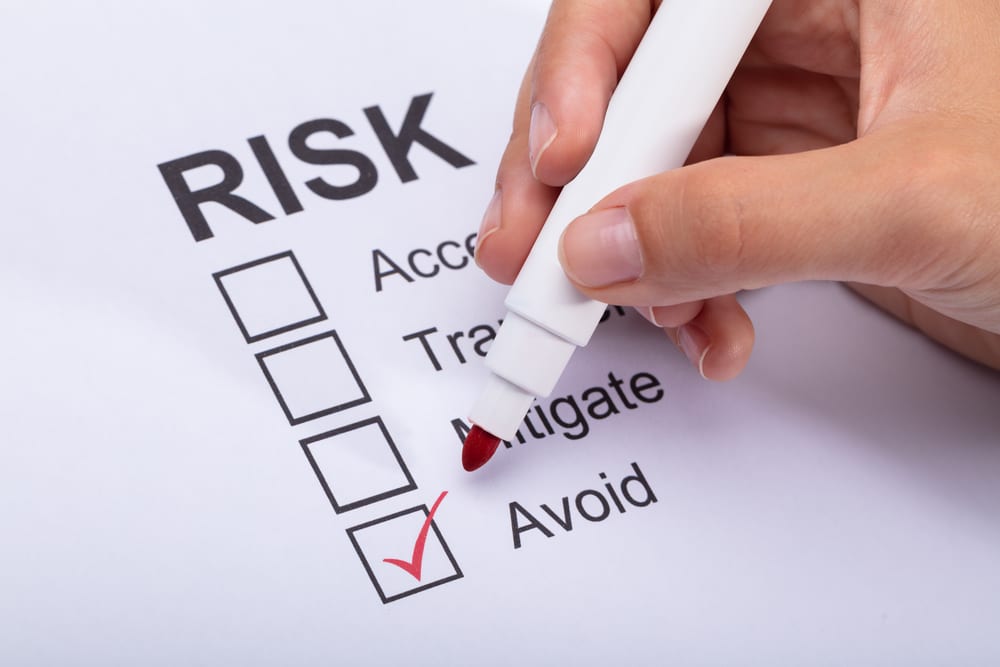You need a strange mixture of headsets to start and grow your own business. The usual focus is on having an optimistic, enthusiastic approach that excites and inspires your team, partners and customers. But successful entrepreneurs always need to balance that with an ability to consider threats to the business and to plan diligently to counter those potential risks.
You need to ask yourself what is the worst thing that can happen? And then to have a plan in place to deal with it.
To ensure that you can quickly bounce back from some of the obstacles every business faces, here are some of the risks you should consider.
Protect Your Company’s Intellectual Property
Intellectual property refers to any aspect of your business you have created yourself, such as your brand name and logo. You can prevent other individuals or brands from replicating your ideas, by protecting your intellectual property with trademarks and copyrights. For example, a trademark enables your company to protect various recognisable features of your business, as it can prevent others from copying your design or names. Getting your brand trademarked is a tedious process, and you should definitely consult a trademark attorney before you start this process. While copyright will protect an original, creative work, such as a video, photo or book. See here for a more comprehensive guide.
Secure the Best Insurance Option
If you employ others, even on a casual basis, then you are legally required to have employers’ liability insurance. After that insurance will depend on the relevant regulations governing your industry. Deal with the public in any way: you’ll need Public Liability insurance. Give professional advice; you should get Professional Indemnity cover. The other main categories include:
- Property insurance
- Business liability insurance
- Vehicle insurance
- Product liability insurance
If your business is in any way niche or specialist, you should talk to an insurance broker and get some quotes. When looking around for the right insurance provider, you will want to opt for a company that can tailor their policies to fit your specific business needs, saving you time and money. Hiscox, for example, are trusted business liability insurance providers that can offer up to £10 million of cover. If you are involved in bidding for Government contracts you might also want to make contact with a bid protest attorney so that you are prepared in the event of this type of commercial dispute.
Reduce Cybersecurity Vulnerabilities
According to the 2018 Cyber Security Breaches Survey, nearly half of all UK businesses were the victim of a cyber-attack or a security breach within the last year. Not only might the breach have impacted a company’s reputation, but it also would have reportedly cost them thousands of pounds.
If you have yet to do so, you must make it your business’s priority to reduce cyber-security vulnerabilities. There are a number of solutions available to prevent a hacking or data breach, such as:
- A dependable firewall
- Reliable anti-virus and anti-malware software
- Data encryption
- Managed IT services
- Strict password policies
- In-depth cybersecurity training
If you fail to protect your company from a potential cyber-attack, it is possible you will become another victim of cyber crime, which can lead to serious repercussions for your business.
Secure Your Business Premises
If you have business premises then you will have goods and equipment inside that needs to be protected too. Security is important not just to protect those items but also to give a clear message to potential criminals. If you look well protected they are less likely to attempt to steal your goods, equipment, data or money. Here are some security measures to consider:
- Install security lighting
- Fit window locks
- Strengthen all doors
- Introduce access control systems
- Invest in a security alarm
- Add security mirrors for blind spots
Also, if an area of a company might be vulnerable, consider installing CCTV to monitor all activity. However, you must review the data protection rules before you do so.
You also might be able to install shutters or grilles onto your windows; however, you may need to seek planning permission from a local council before you do so.
Those are just a few of the main risks that you may need to prepare for. Deal with those problem areas fast and free yourself up to focus less on problems and more on the opportunities your business needs to get ahead.

